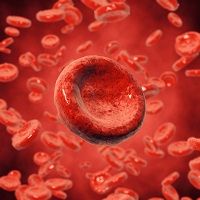Article
LCZ696 Changing the Course of Heart Failure One Patient at a Time
Author(s):
Heart failure is highly debilitating and life threatening – nearly half the patients who die from cardiovascular causes do so suddenly when their heart simply stops pumping, well before medical intervention is even possible.

Heart failure is highly debilitating and life threatening — nearly half the patients who die from cardiovascular causes do so suddenly when their heart simply stops pumping, well before medical intervention is even possible.
At the American Heart Association (AHA) Scientific Sessions 2014, John McMurray, MBChB, University of Glasgow, shared his findings regarding the PARADIGM-HF study comparing the angiotensin receptor-neprilysin inhibitor LCZ696 with enalapril in heart failure patients with reduced ejection fraction.
PARADIGM-HF randomized a total of 8,399 class II to IV heart failure patients with an ejection fraction of 40% or less to LCZ696 200 mg twice daily or enalapril 10 mg twice daily coupled with additional recommended therapy. While ending the study early and monitoring a follow-up at 27 months, results found mortality rates from cardiovascular causes or hospitalization for heart failure occurred only in 21.8% of the LCZ696 group compared with the rate of 26.5% in the enalapril group.
While previous research explained enalapril had improved survival in these patients, new data, as well as both doctors’ and patients’ assessments suggested LCZ696:
- Reduced the risk of dying suddenly by 20% — in HFrEF patients, 45% of CV deaths and 36% of all-cause deaths were sudden
- Reduced first and subsequent HFrEF hospitalizations by 21% and 23%, respectively
- Reduced hospitalizations for a CV reason or for any reason both by 16%
- Reduced the need for more intense outpatient treatment by 16%
- Reduced emergency room visits because of rapid symptom worsening by 30%
Effects on certain heart biomarkers indicated that compared to enalapril, LCZ696 reduced cardiac stress and damage.
In essence LCZ696 cut incidence of sudden deaths, emergency room visits, hospitalizations, worsening symptoms, and need for more intense treatment in HFrEF patients compared to those with
enalapril.
“This really is an astonishing result and a real breakthrough for patients with heart failure,” said McMurray.
David Epstein, Division Head, Novartis Pharmaceuticals said, “These results provide strong evidence that we may be able to do more than reduce risk of death o hospitalization with LCZ696 versus enalapril. This therapy offers hope to millions of people living with HFrEF that they can also reduce or slow the decline in their heart function, potentially altering the progression of their disease.”
A news release from the European Society of Cardiology (ESC) stated, “Given the survival advantage of LCZ696 over currently available drugs, once this drug becomes available, it would be difficult to understand why physicians would continue to use traditional angiotensin converting-enzyme inhibitors (ACEI) or angiotensin receptor blockers (ARB) for the treatment of heart failure.”





